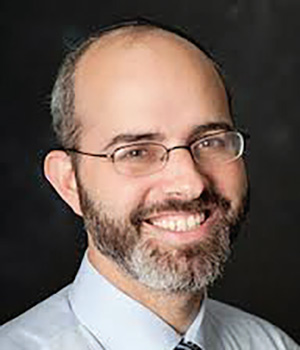
May these words of Torah serve as a merit le’iluy nishmat Menachem Mendel Ben Harav Yoel David Balk, a”h.
This week we learned Avoda Zara 66. These are some highlights.
Avoda Zara 66: Is it advisable to avoid relying on bitul?
Our Gemara teaches about a forbidden item losing its identity when it falls into a mixture with permitted matter. Often, if the forbidden item no longer adds taste to the mixture, the prohibited item becomes permitted and the entire mixture is allowed. Tastes are lost when they are overwhelmed by a massive majority. If there are 60 times more permitted matter than prohibited matter, the forbidden item becomes batel b’shishim and the entire mixture becomes permitted. Is it a display of piety to avoid relying on bitul b’shishim? Should a pious person try not to eat from a mixture that contains any amount of prohibited matter?
Issur Veheter Ha’aruch (sha’ar 57 din 15) writes that a person who would like to be strict on himself and not eat from an animal or bird that was permitted after a person asked a sage, or if he does not want to eat from a mixture that is permitted based on bitul b’shishim, is allowed to do so. Shu”t Mahara”m (Siman 615) also writes that every person has the right to add stringencies upon himself. It is a good thing to make yourself holy by forbidding to yourself that which is permitted by the letter of the law. Adding stringency and avoiding a scintilla of prohibited matter is a fulfillment of the mitzvah (Devarim 14:2) “Ki am kadosh ata laHashem Elokecha uvecha bachar Hashem lihyot lo le’am segula mikol ha’amim asher al penei kol ha’adama, For you are a holy nation to Hashem your God and Hashem has chosen you to be a treasured nation, [more beloved] than all the nations that are on the face of the earth.”
There are great halachic authorities who disagree and feel strongly that it is not appropriate to refuse to rely on bitul or other rabbinic leniencies. Torat Ha’asham (Kellal 76 din 2 s.v. velachein) writes that one who wishes to be strict on a matter that the rabbis of the Talmud were not strict about, such as to avoid eating a mixture in which the prohibited matter was batel b’shishim, is considered like a heretic. He is disrespecting the great masters of the Torah. Whatever his reward might be, it is overshadowed by the sin he is committing. The Rama (Shu”t Siman 54) also seems to strongly oppose excess stringencies. A man, in that case, had written to the Rama and expressed a wish to be extra strict; the Rama responded with the words of the Talmud Yerushalmi (Nedarim 9:1), “Let what the Torah prohibited be enough for you.”
Bnei Yissachar (Ma’amarei Chodesh Adar Ma’amar 2 Derush 7) explains the Kabbalistic reasons for the concept of bitul. Every item that Hashem made contains a Divine spark. Items with a liberated spark, that can be easily elevated, are kosher. Items with a spark that is tied down, and hard to free, are unkosher. When a forbidden item falls into a mixture and becomes kosher through the concept of bitul b’shishim, Hashem is arranging for the item to be eaten so that the spark will be elevated. Therefore, he argues, it is not the way of piety to avoid eating an item that became permitted through bitul b’shishim. In his opinion, it is a great mitzvah to eat a mixture that has forbidden items in it that became permitted by bitul b’shishim. When Hashem arranges for a prohibited item to become permitted, it is a moment of redemption. Hashem is trying to enable a spark, caught in the talons of evil, to exit the realm of evil, become a part of a holy Jew, and gain elevation and redemption. When the sages in the Talmud compliment a person who will not eat food that a rabbi had to rule about, they refer to scenarios in which a rabbi had to rule based on his own logic. But, if a rabbi is applying the long-standing principle of bitul b’shishim it is not an act of piety to avoid eating such food.
Gemara Berachot (8a) states that a person who benefits from the labor of his hands is greater than a person who fears Heaven. Shelah Hakadosh (Masechet Shevuot Ner Mitzvah s.v. tachlit halimud) explains that the Gemara is discussing our question. It is better to be a person who works hard at study and analysis and through this effort discovers why a questionable item is in fact permitted, than to be a man who fears Heaven and as a result avoids eating a matter because the item might be prohibited for it contains some isur in it. Our Torah wants us to enjoy life in this world. It is better to rely on bitul than to insist on being extra strict with oneself. (Mesivta)
By Rabbi Zev Reichman
Rabbi Zev Reichman teaches Daf Yomi in his shul, East Hill Synagogue.










